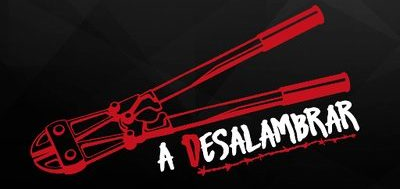 |
Gernika y los luchadores antifascistas en el recuerdo: Actos en Dublin y Buenos Aires
 En el marco del 75 aniversario del bombardeo de Gernika, en los próximos días se realizarán actos en diferentes ciudades además del Juicio público contra el Franquismo y el homenaje y acto político previsto para el domingo en Gernika organizado pro Askapena y Ahaztuak 1936-1977.
En el marco del 75 aniversario del bombardeo de Gernika, en los próximos días se realizarán actos en diferentes ciudades además del Juicio público contra el Franquismo y el homenaje y acto político previsto para el domingo en Gernika organizado pro Askapena y Ahaztuak 1936-1977.
De esta manera, el viernes en Dublin y el sábado en Buenos Aires se recordará el ejemplo y la importancia de la lucha antifascista de ayer y hoy, a través de actos internacionalistas.
Euskal Herriaren Lagunak de Argentina convoca al Homenaje a todos los caídos en la lucha contra el fascismo en una jornada titulada: "Gernika, 75 años: el fascismo de ayer y el fascismo de hoy"
El sábado 28 de Abril a las 18,30 horas en Chacabuco y México, local Asambleas del Pueblo, Ciudad de Buenos Aires, estreno en Argentina de la película Ispansi
dirigida por Carlos Iglesias (Año 2011)
"Ispansi" es un homenaje a los que cayeron luchando contra el fascismo español y a todas y todos los que debieron huir del mismo. La trama de la cinta se centra en los que se fueron a Rusia con 3.000 niños del lado republicano para que los pequeños no tuvieran que sufrir las barbaridades de la contienda, con tan mala fortuna, que tuvieron que sufrir además la invasión alemana de ese país en plena Segunda Guerra Mundial.
Al finalizar la película hablará el poeta y escritor Vicente Zito Lema
Luego de la proyección de la película y del debate, a partir de las 22 horas abre las puertas la Herriko Taberna Vasca.
La Herriko es un espacio único para seguir cultivando una de las costumbres más arraigadas del pueblo vasco: compartir los pintxos y el vino, la música, las canciones y las charlas fraternales, donde la política y la solidaridad van de la mano.
Tras la cena está prevista la actuaciçon del trovador uruguayo Jorgue Guichón
El viernes en Dublin tendrá lugar un acto con debate y música
The tragic outcome of the war left the Spanish state in the hands of the fascist dictatorship of General Franco, with thousands of his opponents murdered or shot by firing squad after summary trial and thousands of political prisoners and exiles. It also left the Basque and Catalan nations with unfulfilled hopes of national independence, their languages banned. They are now permitted their languages but their self-determination is still denied.
The attempts by people now to uncover the graves, record and try to identify the bodies of the victims of fascism are being obstructed by the authorities of the Spanish state. This is because the top echelons of the military, police, judiciary, civil service, industrialists and intelligencia who were part of General Franco’s dictatorship, remained where they were. They merely adopted the veil of democracy after Franco died while their erstwhile opponents in the PSOE (Spanish Labour Party) joined them.
Just over a fortnight ago the Basque repressive police force, the Ertzaintza, killed a youth. Three van-loads of police arrived at a scene where a crowd were celebrating the victory of the Bilbao Athletic football team and began firing rubber projectiles into the crowd at a maximum distance of 20 metres (despite the stated ‘safe’ distance being fifty). A youth fell dying and some other people were struck with batons, including a person trying to help the stricken youth.
Immediately cover stories began to emerge from the police, echoed by the passive mass media and compliant politicians: “the police were called to an accident; the police were called to a riot; there had been a fight; the youth had fallen ....” This structure is accustomed to going into action when they are supporting the repressive actions of the Basque police against the Basque pro-Independence Left, violently breaking up protest demonstrations or occupations. In addition, the National Police Force and the Guardia Civil remain in existence today as they did in the days of Franco, carrying out surveillance, harassment, arrests and torture of Basque political activists, resulting in the number of Basque political prisoners never falling below 700, out of a total population of less than three million.
There will always be good reasons to commemorate the bombing of Gernika, which inspired Picasso’s famous painting “Guernica” but the context of the continuing reality in the Basque Country makes it even more relevant and I ask your help for us do so.
